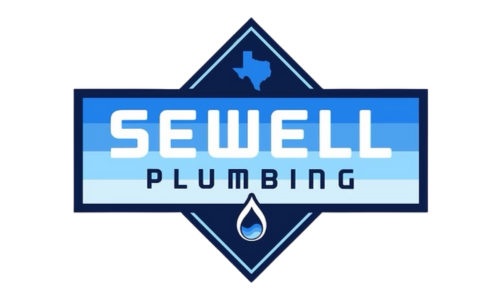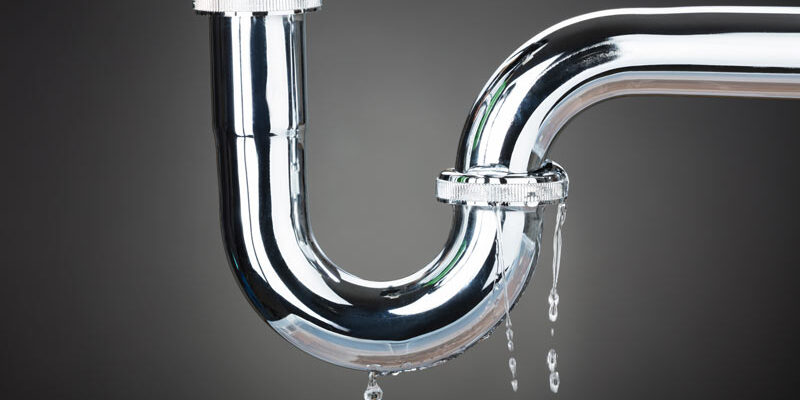Water leak repair is an essential aspect of home maintenance that often goes unnoticed until significant damage has occurred. Homeowners must be proactive in identifying and addressing leaks to protect their property. In this comprehensive guide, we’ll cover everything you need to know about water leak repair, helping you safeguard your home against the potential hazards of unchecked water damage.
Identifying Water Leaks in Your Home:
Early Signs of Water Leaks:
Detecting water leaks early is key to preventing extensive damage. Common indicators include an unexplained increase in water bills, damp spots on floors or walls, the sound of continuous dripping or flowing water, and musty odors indicating mold growth. Staying vigilant for these signs can lead to early detection and simpler water leak repair.
Common Areas for Water Leaks:
Water leaks can occur in several areas around the home. Pay special attention to bathrooms and kitchens, as these are hotspots for leaks due to the concentration of plumbing. Also, inspect basements, crawl spaces, and any area with visible pipes regularly.
DIY Inspection Tips:
Conducting regular DIY inspections can help catch leaks early. Check under sinks, around toilet bases, and near appliances like washing machines and dishwashers. Look for puddles, warped or discolored surfaces, and dripping sounds. A flashlight can help inspect dark or confined spaces.
The Consequences of Ignoring Water Leaks:
Structural Damage Risks:
Ignoring water leak repair can lead to serious structural damage. Continuous water exposure weakens wooden structures, corrodes metals, and can cause foundational issues. This not only compromises the safety of your home but also leads to costly repairs.
Mold and Health Concerns:
Water leaks create damp environments that are ideal for mold growth. Mold poses health risks, particularly for individuals with allergies or respiratory issues. Timely water leak repair is crucial to prevent mold proliferation.
Increased Water Bills and Waste:
A hidden water leak can lead to a significant increase in your water bill. Conserving water is not just cost-effective; it’s also environmentally responsible. Promptly addressing leaks helps in water conservation and reduces your utility expenses.
Temporary Solutions for Immediate Leak Management:
Shutting Off Water Supply:
In the event of a major leak, the first step should be to shut off the water supply to prevent further damage. Knowing the location of the main water shut-off valve in your home is crucial for quick response.
Emergency Patching Techniques:
For a temporary fix, you can use commercial patches or plumbing tape to seal small leaks. These solutions can buy you time until a professional water leak repair service can address the issue properly.
When to Call a Professional Immediately:
If the leak is substantial, involves sewage water, or if you’re uncertain about the source, it’s time to call in a professional. Expert intervention is necessary for complex leaks to prevent long-term damage.
Tools and Materials for DIY Water Leak Repair:
Basic Toolkit Essentials:
For basic DIY water leak repair, you’ll need a toolkit that includes adjustable wrenches, pliers, screwdrivers, a pipe wrench, and a plumber’s tape. These tools can handle simple tasks like tightening loose fittings or replacing small parts.
Choosing the Right Sealants and Patches:
Selecting appropriate sealants is crucial for effective leak repair. For pipe leaks, epoxy putty or pipe sealants are often used. Rubber patches can temporarily fix leaks in hoses or pipes.
Safety Equipment and Precautions:
Always prioritize safety when performing DIY repairs. Wear gloves to protect your hands, and goggles for eye protection, and ensure the area is well-ventilated, especially when using chemical sealants.
Step-by-Step Guide to Repairing Common Leaks:
Fixing Leaky Faucets:
A common household issue is a leaky faucet. Typically, this involves replacing worn-out washers or gaskets. Turn off the water supply, disassemble the faucet, replace the faulty parts, and reassemble.
Repairing Pipe Leaks:
For minor pipe leaks, first turn off the water supply. Clean and dry the affected area, apply epoxy putty or a pipe clamp, and allow it to set as per the manufacturer’s instructions.
Sealing Leaky Toilets:
Toilet leaks often occur at the base or in the tank. For base leaks, resealing the toilet to the floor is necessary. Tank leaks may require replacing the flapper or adjusting the float.
When to Seek Professional Water Leak Repair Services:
Evaluating the Severity of the Leak:
Assess the leak’s severity. If it’s more than a simple drip or involves main water lines, seeking professional water leak repair services is advisable.
Benefits of Professional Diagnosis and Repair:
Professionals can accurately diagnose and repair complex leaks. Their expertise ensures a thorough job, preventing recurrent issues and potential water damage.
How to Choose a Reliable Repair Service:
Look for licensed, experienced, and well-reviewed water leak repair services. Ensure they offer a warranty on their work and use quality materials.
Preventative Measures to Avoid Future Leaks:
Regular Maintenance Tips:
Regular maintenance, like inspecting pipes and fixtures, cleaning drains, and monitoring water pressure, can prevent future leaks.
Installing Leak Detection Systems:
Modern leak detection systems can alert you to the presence of water where it shouldn’t be, allowing for early intervention.
Best Practices in Plumbing Care:
Avoid chemical drain cleaners that can corrode pipes, don’t overload garbage disposals, and protect pipes from freezing in cold weather to maintain your plumbing system’s integrity.
Understanding the Costs of Water Leak Repair:
Estimating DIY Repair Costs:
DIY repairs are cost-effective for minor issues but ensure you have the right tools and materials. Factor in the cost of these along with your time.
Factors Influencing Professional Repair Costs:
The cost of professional water leak repair varies depending on the leak’s location, severity, and the materials required. Emergency services may also carry a premium.
Budgeting for Unexpected Plumbing Issues:
Set aside a contingency fund for unexpected plumbing repairs. Regular maintenance can also mitigate the need for emergency repairs, which are often more expensive.
Legal and Insurance Aspects of Water Leaks:
Navigating Homeowners Insurance Claims:
Some water leak repairs may be covered under your homeowner’s insurance. Understand your policy and document the leak and repairs for potential claims.
Legal Responsibilities in Multi-Unit Buildings:
In multi-unit buildings, the responsibility for water leak repair can depend on the leak’s location. Familiarize yourself with your building’s policies and your responsibilities.
Documenting Repairs for Future Reference:
Keep records of all repairs and maintenance performed. This documentation can be valuable for insurance purposes and future property assessments.
The Future of Water Leak Repair and Prevention:
Advances in Leak Detection Technology:
Technological advancements are making leak detection more sophisticated. From smart home systems to advanced sensors, the future of leak detection is promising.
Eco-Friendly Plumbing Solutions:
The trend toward sustainable living is influencing water leak repair. Eco-friendly plumbing solutions not only save water but also reduce environmental impact.
Predictions for Home Plumbing Maintenance:
Expect more integrated home maintenance solutions, where plumbing health is monitored continuously, and issues are addressed proactively.
Frequently Asked Questions (FAQs)
What are the signs of a water leak in my home?
Common signs include increased water bills, the sound of running water when taps are off, damp spots on walls or ceilings, mold or mildew growth, and a musty smell.
How do I locate a water leak inside my house?
Check for wet spots under sinks, around toilets, near water heaters, and appliances like washing machines. Listen for dripping sounds and look for discoloration on walls, ceilings, or floors.
Can a small water leak cause significant damage?
Yes, even small leaks can lead to significant damage over time, including structural issues, mold growth, and increased utility bills.
What should I do if I find a water leak?
For small leaks, you might attempt a temporary fix using plumbing tape or sealants. For larger leaks or if you’re unsure of the source, it’s best to turn off the water supply and contact a professional immediately.
How can I temporarily fix a leaking pipe?
As a temporary solution, you can use plumbing tape, epoxy putty, or a pipe clamp to seal the leak until professional help arrives.
When should I call a professional for water leak repair?
If the leak is substantial, involves main water lines, or you’re unable to identify the source, it’s best to call a professional plumber.
How much does it typically cost to repair a water leak?
The cost varies depending on the leak’s location, severity, and the necessary repairs. Minor leaks may be inexpensive to fix, while major repairs can be more costly.
Can water leaks lead to mold problems?
Yes, persistent moisture from leaks creates an ideal environment for mold growth, which can lead to health issues and additional repair costs.
Are water leaks covered by homeowners insurance?
This depends on the cause of the leak and your insurance policy. Generally, sudden and accidental leaks are covered, but ongoing maintenance issues are not.
How can I prevent water leaks in my home?
Regular maintenance, monitoring water pressure, protecting pipes from freezing, and promptly repairing any minor leaks can help prevent larger leaks.
Do water leak detectors work?
Yes, water leak detectors can be very effective in early leak detection, helping to prevent extensive damage by alerting homeowners to the presence of unexpected water.
What is the most common cause of plumbing leaks?
Common causes include corroded pipes, high water pressure, temperature changes, clogs, and aging plumbing materials.
Conclusion:
Effective water leak repair is a vital component of home maintenance. By being vigilant, understanding the basics of leak repair, and knowing when to call in professionals, you can protect your home from the potentially devastating effects of water damage. Always remember, prevention is better than cure, especially when it comes to plumbing!







